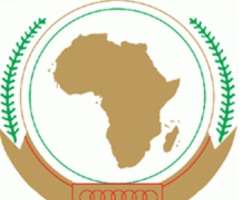First African Leadership on ICT: First Knowledge Society graduates gather in Addis for African Union award ceremony

ADDIS ABABA, Ethiopia, August 24, 2012/African Press Organization (APO)/ -- First African Leadership on ICT: First Knowledge Society graduates gather in Addis for African Union award ceremony
WHEN: 27 - 29 August 2012
Activities to be carried out during this event will include are:
27 August 2012 – Opening ceremony of workshop on leadership and institutional capacity building in technology in education, science, technology and innovation in Africa.
29 August 2012 at 16.00 - Awards ceremony,
WHERE: African Union Headquarters, New AU Conference Center, Addis Ababa, Ethiopia
WHO: Organised by the Department of Infrastructure and Energy of the African Union Commission, in collaboration with GESCI and the Ministry of Foreign Affairs of Finland
WHY: The first of its kind in Africa, the African leadership in ICT course was developed in consultation with African and international experts. This seven month course combines theory with applied learning, and challenges participants to discover new leadership qualities within themselves and to become transformational leaders.
Strategic objective: The workshop will enable participants to produce comprehensive policy coherence roadmaps towards knowledge society development in their respective countries and the region.
Specific Objectives:
• Provide opportunities for participant sharing of country report KS status and policy recommendations.
• Engage participants with leadership, knowledge society and futures thinking tools for building policy coherence roadmaps & action plans.
• Verify the leadership development model in ICT and the Knowledge Society that has been defined through the ALICT course.
Participants: over 160 people are expected to attend the Award ceremony from the African Union Commission; GESCI; candidates and laureates of the courses as well as invited guest.
Outcome:
• Strengthened career- advancement opportunities through relevant professional development;
• Acquired 21st Century skills for the development of the Knowledge Society ;
• Membership to a continent-wide Professional Network of ALICT alumni ;
• Expected accumulated credits for post-graduate qualifications ;
• Working knowledge of web 2.0 tools (social media, tagging, blogging, podcasting, social bookmarking, vodcasting etc.) ;
• Working knowledge of Futures Thinking Tools (Horizon Scanning; Scenario Development; Delphi Method and Trend Impact Analysis);
• Appreciation for the importance of innovation and creativity in strategy formulation;
• Improved Communication Skills;
• Improved project management, policy planning and implementation skills;
• Mastery of Leadership Toolkit for the Knowledge Society
Background :
The African Leadership on ICT (ALICT) course is conceptualized and designed to build capacity of future leaders in the area of building knowledge societies in Africa. To deliver this objective, the ALICT course was designed and launched in January 2012 with foundation and core modules covering general themes on the Knowledge Society, Leadership, Futures Thinking, and specific themes on the pillars of the Knowledge Society related to Science, Technology & Innovation, Information & Communication Technology and Education. As part of the course participants have produced assignments and reports on the status and futures perspectives of development towards knowledge societies in national and regional contexts.
During the final workshop, participants will use the country reports as a basis for development of policy coherence roadmaps towards knowledge societies for their countries and for the Africa region. Participants will have the opportunity to explore the use of Leadership, Knowledge Society and Futures Thinking toolkits and frameworks introduced through-out the coursework. They will use these tools to bring together the policy coherence roadmaps for implementing their report policy recommendations.
